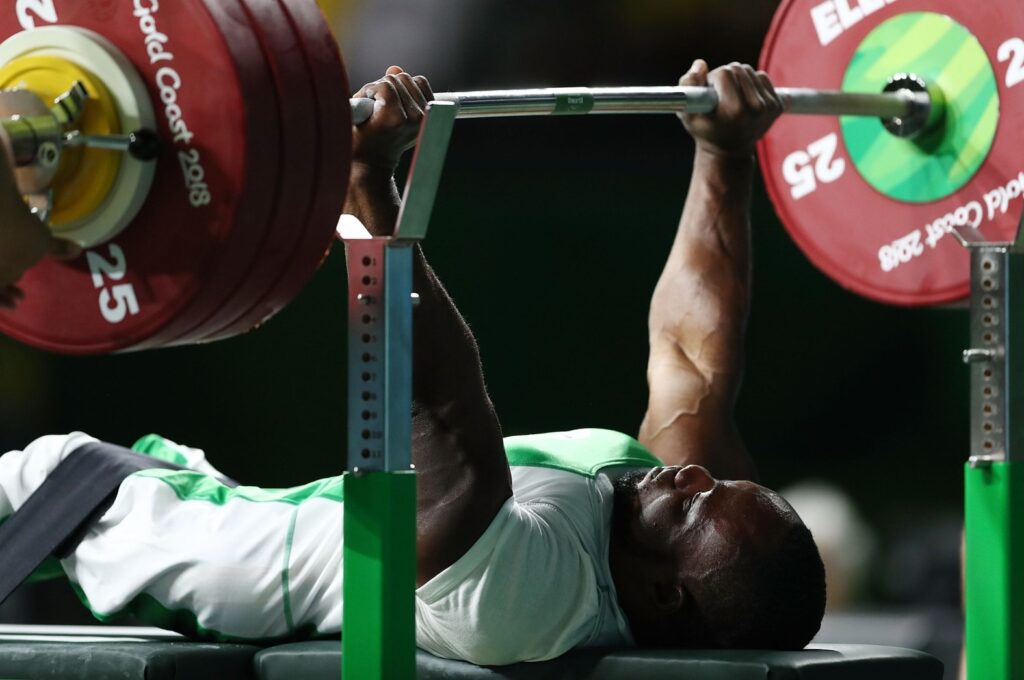Paralympic Sports In Nigeria
The Paralympic movement in Nigeria has undergone remarkable growth and transformation over the years, making significant strides in the world of adaptive sports. These athletes exemplify strength, resilience, and determination as they compete on the global stage, representing their nation with pride.
The roots of Paralympic sports in Nigeria can be traced back to the mid-20th century when individuals with disabilities began to explore their potential in various athletic disciplines. The turning point came in 1989 when Nigeria participated in the Far East and South Pacific Games for the Disabled (now known as the Asian Para Games) in Beijing, China. This marked the official entry of Nigeria into the world of international Paralympic sports.
Since that pivotal moment, Paralympic sports in Nigeria have experienced significant growth and development. The country’s government and various organizations have played a pivotal role in nurturing and promoting adaptive sports. The National Paralympic Committee of Nigeria (NPC Nigeria) was established in 1995 to oversee the development and coordination of Paralympic activities in the country.
Nigeria’s Paralympic athletes have excelled in various sports, including athletics, powerlifting, and wheelchair basketball. The country’s achievements in these disciplines have been nothing short of spectacular, and Nigerian Paralympians have consistently brought home medals from international competitions.

Notable Achievements
Nigeria has a rich history in Paralympic sports and has produced many notable moments and athletes who have excelled on the international stage. Here are some notable moments and achievements in Paralympic sports in Nigeria:
Athletics: Nigerian Paralympic athletes have dominated in track and field events. Athletes like Ifeanyi Christian won gold in the men’s 100m T46 event at the Rio 2016 Paralympic Games, showcasing their extraordinary speed and agility. Nigeria has also had success in athletics at the Paralympics. Notable athletes like Flora Ugwunwa and Eucharia Iyiazi have won medals in events such as shot put and javelin.
Team Nigeria’s Medal Haul: In recent Paralympic Games, Team Nigeria has consistently performed well, winning multiple medals in various sports. They have been a force to reckon with in powerlifting, athletics, and table tennis.
Powerlifting: Nigeria has been a powerhouse in Paralympic powerlifting. Talented athletes like Lucy Ejike have set world records and claimed multiple gold medals at various Paralympic events.
Wheelchair Basketball: The Nigerian women’s wheelchair basketball team, known as the “D’Tigress,” has made significant strides on the international stage. Their determination and teamwork have earned them recognition and respect worldwide.
First Paralympic Medal: Nigeria’s first Paralympic medal came at the 1992 Barcelona Paralympic Games when Adeoye Ajibola won a gold medal in the men’s 100m T12 event.
Esther Oyema’s Success: Esther Oyema is a Nigerian powerlifter who has won multiple Paralympic medals, including gold at the 2012 London Paralympics and silver at the 2016 Rio Paralympics in the women’s 48kg category.
Lauretta Onye’s Shot Put Gold: Lauretta Onye, a Nigerian para-athlete, won gold in the women’s shot put F40 category at the 2016 Rio Paralympics, setting a new Paralympic record.
These notable moments and achievements in Paralympic sports highlight the talent and determination of Nigerian para-athletes who have excelled at the highest levels of competition, inspiring others and raising awareness of disability sports in Nigeria.

While Nigeria has made remarkable progress in Paralympic sports, it has also faced its share of challenges:
1. Funding: Adequate funding remains a perennial issue. Athletes often struggle to secure sponsorship and financial support, which hinders their training and participation in international competitions.
2. Infrastructure: Accessible sports facilities and training centres for Paralympic athletes are limited, making it challenging for them to hone their skills and reach their full potential.
3. Awareness and Stigma: There’s a need for increased awareness and reduced stigma surrounding disabilities in Nigeria. Societal attitudes toward disability can affect athletes’ self-esteem and discourage their participation in sports.
4. Training and Coaching: Specialized training and coaching for Paralympic athletes are essential but often lacking. Developing a strong coaching infrastructure is crucial for the continued success of these athletes.
Despite these challenges, the future of Paralympic sports in Nigeria looks promising. The government and various stakeholders are taking steps to address these issues and provide better support to athletes. Initiatives like the “Adopt-an-Athlete” program have helped raise funds and awareness for Paralympic sports.
Furthermore, the success and visibility of Nigerian Paralympians on the international stage continue to inspire young athletes with disabilities. Grassroots programs and talent identification initiatives are being developed to nurture the next generation of Paralympic champions.
Paralympic sports in Nigeria have come a long way, from humble beginnings to achieving international recognition and success. The journey has been marked by resilience, dedication, and triumph over adversity. With continued support, funding, and awareness, Nigerian Paralympic athletes are poised to make even greater strides on the global stage, not only in terms of medals but also in changing societal perceptions of disability and inspiring a new generation of athletes to overcome challenges and reach for their dreams. The story of Paralympic sports in Nigeria is one of empowerment, inclusivity, and the human spirit’s indomitable will to overcome obstacles and achieve greatness.
Sources
- https://en.wikipedia.org/wiki/Nigeria_at_the_Paralympics
- https://www.topendsports.com/events/paralympics/sports/index.htm
- https://www.paralympic.org/nigeria
- https://en.wikipedia.org/wiki/Nigeria_at_the_2020_Summer_Paralympics
- https://paralympics.sitesng.com/en_History.html
- https://www.pulsesports.ng/other-sports/story/nigeria-ready-to-conquer-at-african-paralympics-games-2023082920033393594




